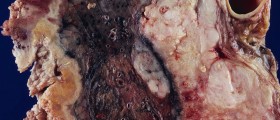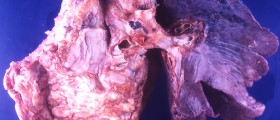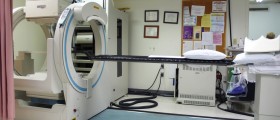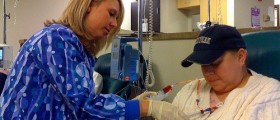
Patients who are diagnosed with esophageal cancer may undergo different treatments including surgery, radiation therapy and chemotherapy. The type of treatment doctors opt for basically depend on the stage of the disease, type of the cancer, patient's overall health as well as several more factors. No matter what treatment has been chosen, after it is completed patients must be monitored for the rest of their lives.
Esophageal Cancer Postoperative Care
In the majority of cases patients undergo surgical resection of the tumor or sometimes even the entire organ. After surgery patients remain hospitalized for approximately 9-14 days. The first day after the surgery they must spend in the intensive care unit where their vital functions are monitored and they receive adequate postoperative care. Respiratory ad cardiac complications may occur and are most commonly reported within the first postoperative days. Once the respiratory and cardiac status are satisfactory patients are transferred to the surgical ward. Feeding begins one day after surgery through the feeding jejunostomy. Finally, 6 days after surgery a swallow study checks whether there is anastomotic leakage.
Further Follow-up Care
Certain number of patients may spend additional time in a skilled nursing facility because they need to learn how to take care of themselves or they have nobody to provide with support and care at their homes.
The first visit to the surgeon after discharge is schedules after 2 weeks. Regular check-ups with an oncologist, on the other hand, continue 4 weeks after discharge and are subsequently performed every 6 months. The majority of patients completely recover within 2 months and may return to every day activities. Some patients, however, need to continue their treatment with radiation therapy. The oncologist determines when it is the most appropriate time for the patient to start with radiation therapy. After this treatment modality patients also undergo regular check-ups because this cancer frequently reoccurs. In advanced stages patients must receive additional treatments (palliative care) able to improve symptoms and maximize nutrition.
Esophageal Cancer Prognosis
Prognosis of esophageal cancer is not so good and the reason why this is so is because many patients turn to their doctors when the disease has significantly progressed. Unfortunately, by the time patients start complaining about dysphagia, the cancer has already infiltrated the organ and may have even spread to nearby organs( predominantly lymph nodes). Patients with disseminated disease (metastases in different organs) are not suitable candidates for surgery and they undergo palliative treatments. Even those who have been operated and undergo radiation therapy must not think that they are cured because the disease may easily return.

















Your thoughts on this
Loading...